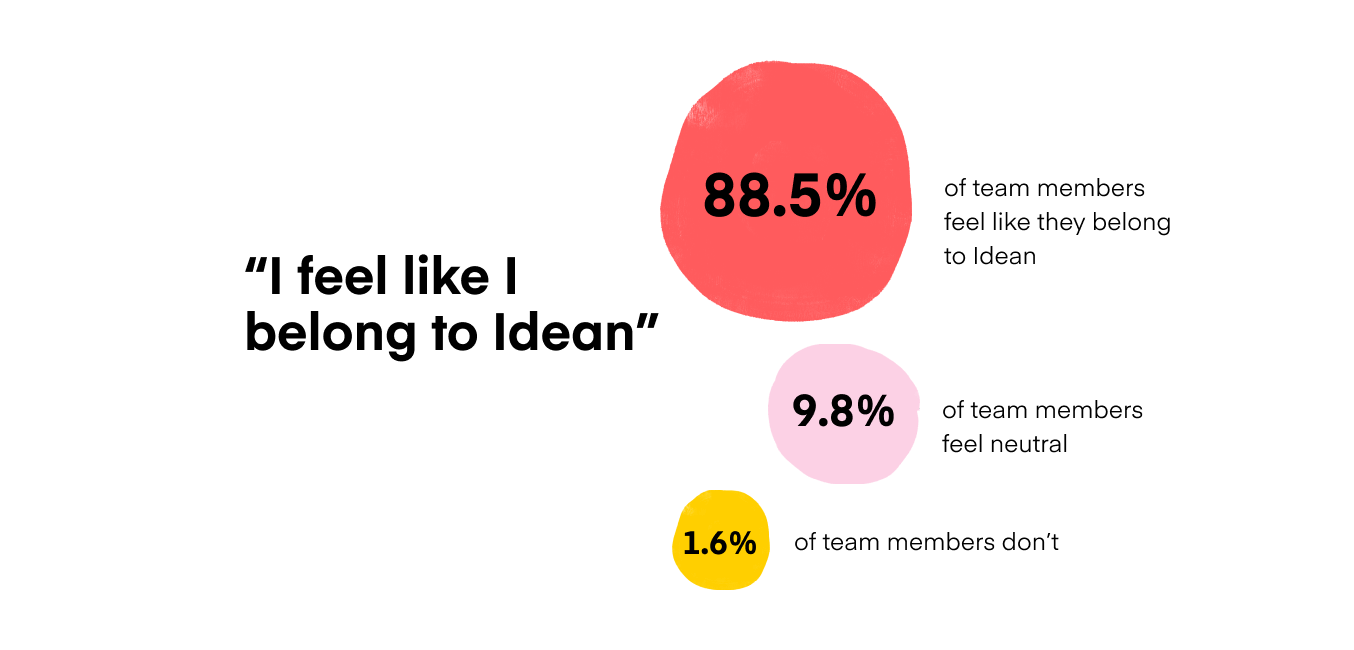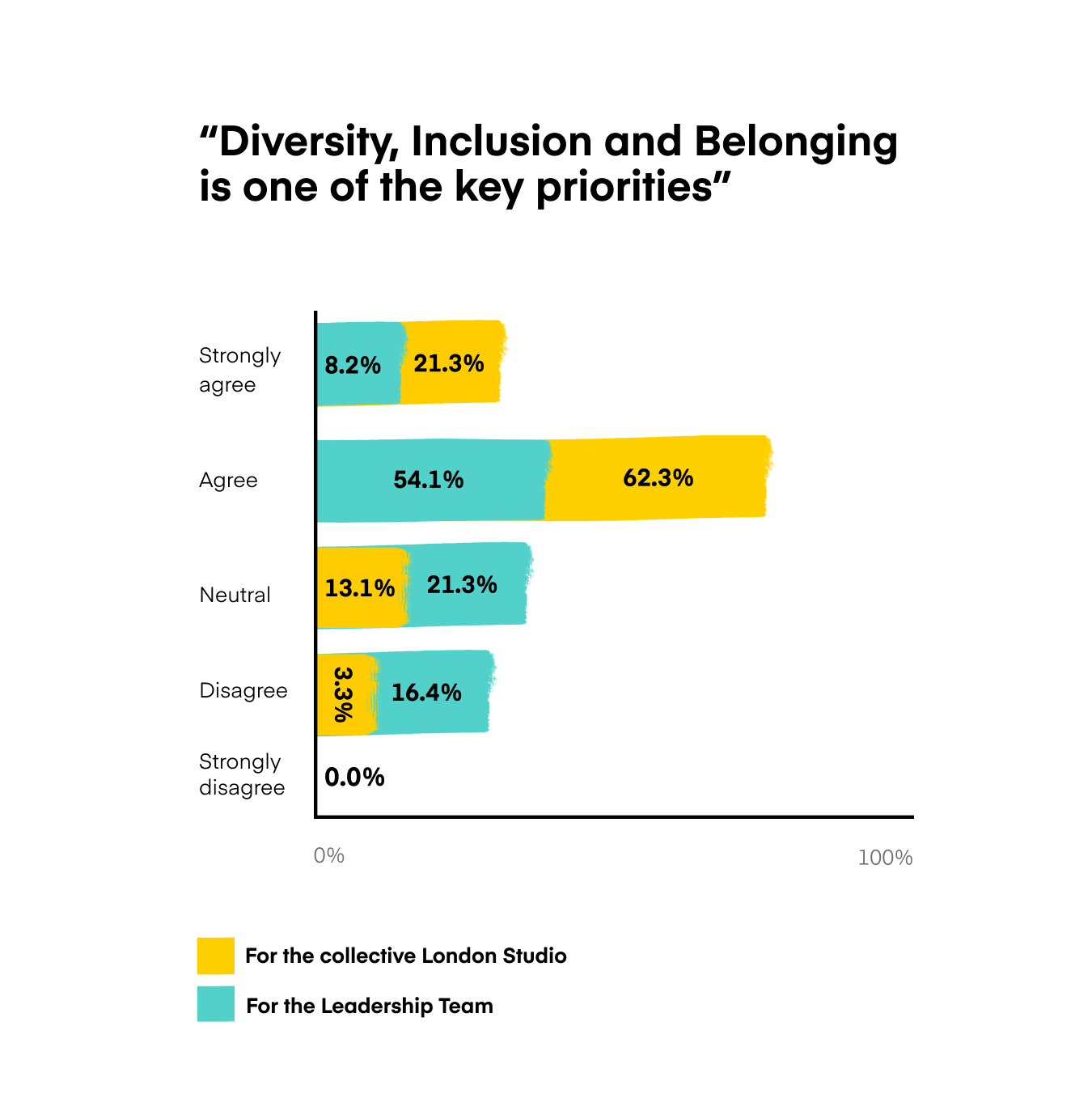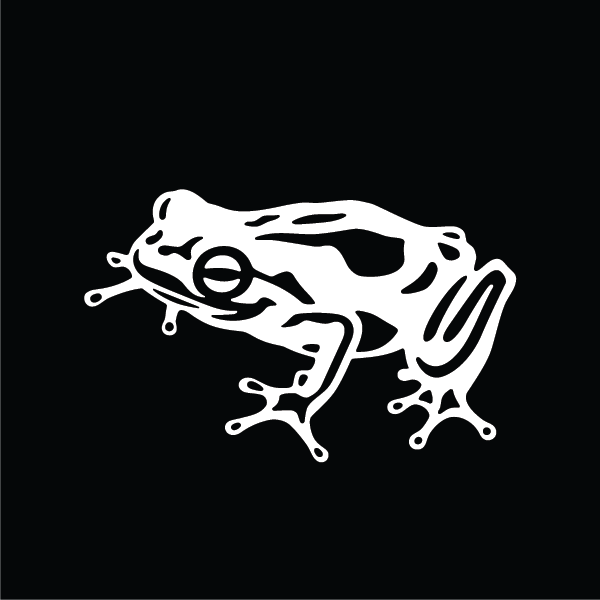
When good culture fails you: why we changed our approach to diversity, inclusion and belonging
At Idean UK we’ve always tried to create an environment where everyone can do great work. And we mean everyone. Because a diverse team, where everyone is doing great work, creates better outcomes for us, our clients and, importantly, the people who use the things we design and build.
What became clear to us earlier this year is that our past efforts to build diverse teams were, while well-intended and executed considerately, not having the impact we needed them to.
Caring is very different from an invested-in commitment which shapes all of a business’ operations. Reflecting now, we feel we didn’t give our diversity, inclusion and belonging efforts enough focus as feedback on our culture was overwhelmingly positive.
We think this is something that many companies with a ‘good culture’ will stumble with. We now understand that this kind of thinking will have effectively made us blind to any wider problems that might have existed across the business over time.
So where did we go wrong, and what are we doing about it?
Looking back
Over recent years, our diversity and inclusion efforts have shaped our broader People and Talent efforts.
We’ve partnered with organisations whose mission it is to change the makeup of our industry (shout out to Muslamic Makers, Triangirls and Somalis in Tech). We’ve developed a strong network of people managers across the business, who play a leading role in our team feeling cared for. We’ve listened and acted as team members have come to us with their problems and challenges when they’ve needed our help and support.
But until this year we weren’t measuring the effectiveness of these efforts. We hadn’t explicitly asked our team if our system was serving their needs, specifically from an inclusion and belonging perspective.

Catalysts to our change
At the beginning of 2020, we faced the consequences of what started to feel like a fairly uncoordinated effort, missing an overarching plan. We were growing fast and needed to hire people at speed. Our team did a great job of bringing in a great group of talented individuals but unfortunately, once we took a step back, we realised that this group at the time was 100% White.
This was recognised by Leadership, our Talent team and the Studio as an issue, and a missed opportunity. What it highlighted was that we needed to do things differently and prioritise hiring underrepresented talent more than we had been – something which our team gave feedback on when we ran our first diversity, inclusion and belonging survey in April.
What also became clear was that while our initial concerns had been around diversity, we also needed to address some challenges related to inclusion and belonging. With hindsight this is not surprising but it further reinforced the realisation that now was the time to change our approach.
Shortly after, at a scale not felt in recent decades, the world began reckoning with the racist systems and structures around us, giving even more weight to the actions we needed to take.
Patterns of harm
Something which we previously hadn’t given enough consideration is that we’re not neutral as a business. We’ve been busy building a system of many processes and structures, and throughout that time we’ve made an enormous amount of decisions about how things should work, how our people are encouraged to behave, and what our culture practically means day to day.
We’re thoughtful by nature, but we’ve never really stopped and made sense of this responsibility in a way that fully reflected what was needed to make our culture work for every current and potential member of our team. Especially since scaling the business to the size that it is today.
“Recognise [patterns of harm]…and create strategies to resolve existing issues and avoid further damage.”
Erica Stanley
We’ve taken comfort in our historically strong gender balance – the Idean UK team is 51% female. This is certainly something to celebrate but it can’t be used to mask our lower-than-we’d-like representation of minority ethnic populations – 12% of our team is Black, Asian or another minority ethnicity and 3% of our team is Black. (The team data included here was collected during our anonymous April 2020 survey and some of these numbers may have changed since.)
We want to build a better studio – one which promotes greater inclusion and belonging. There have been a lot of smart words written about inclusion-first efforts, which we overwhelmingly support. But we also believe that representation matters and continuing to connect with and hire underrepresented talent is also a priority of ours.
Today we know there’s still a way to go, but we’re proud to say that we have been doing some things very differently in recent months.
Doing things differently
Our efforts this year have seen us listen to our team, start new conversations, evaluate our processes, and start to shape better behaviours at Idean UK:
- We’ve organised our efforts differently (they now have a Leadership team sponsor and an active working group for the first time) and we’ve expanded the scope to consistently work towards diversity, inclusion and belonging – we feel now that we were assuming a sense of belonging before (we now measure this today).
- We partnered with Hustle Crew to initiate and facilitate our first conversations around bias, privilege and racism in the workplace.
- We’ve exhaustively audited our recruiting and onboarding processes for opportunities for bias and outlined a series of changes, which we’re busy working through.
- We’ve developed a set of diversity, inclusion and belonging focused guidelines, to help everyone on the team be more conscientious and inclusive in our work environment every day. To accompany this we’ve also communicated a clear process on how to report a concern. You’ll be able to read these soon in an upcoming blog.
- We’ve built a comprehensive Ideanist Handbook in Notion, to make transparent our practices and how things work across the company.
- We’ve built a calendar of important dates and events, to give structure to our efforts of learning, unlearning and celebrating differences.
- We released our 2021 and 2022 diversity, inclusion and belonging goals internally (which you can read on a public Notion page here. This includes targets for ethnic diversity in our team.
Championing inclusive design
We’re also in the privileged position to be able to help our clients deliver products and services that cater for a diverse set of users.
Many people talk about inclusive design, but what does it mean in practice? It’s not just about designing accessible products. It’s about creating inclusive things by default. Things that everyone can enjoy and which makes them feel like they belong.
We’ve been sharing the tools and processes we use to embed inclusive design into our projects, so others can make inclusive design a priority at their organisation:
- Cards for Humanity is our practical tool for inclusive design. Use it to test your products, services and concepts from a diverse set of users and their needs.
- We’re also developing Universal Score, a prioritisation tool to help you push those inclusive features through the product funnel.
- We spoke about our inclusive design efforts with Airbnb and TfL at our recent Pi People event with over 500 attendees. You can watch the recording here.
Final thoughts
We encourage you to take a look at your ‘good culture’. What does that mean, really?
Positivity is a great quality for a workplace, but positivity can also mask problems. We need to face the facts of a lack of diversity in our industry – and that means actively seeking that feedback from employees and fellow team members. And then doing something about it.

frog, part of Capgemini Invent is a global design and innovation firm. We transform businesses at scale by creating systems of brand, product and service that deliver a distinctly better experience. We strive to touch hearts and move markets. Our passion is to transform ideas into realities. We partner with clients to anticipate the future, evolve organizations and advance the human experience.
We respect your privacy
We use Cookies to improve your experience on our website. They help us to improve site performance, present you relevant advertising and enable you to share content in social media. You may accept all Cookies, or choose to manage them individually. You can change your settings at any time by clicking Cookie Settings available in the footer of every page. For more information related to the Cookies, please visit our Cookie Policy.